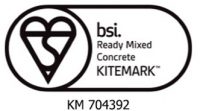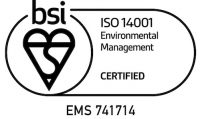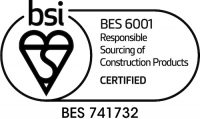There are several different types of screed available for varying applications, and choosing the right one can be difficult if you’re unsure of the various properties and characteristics of each one. Here, we’ve listed different types of screed, their thicknesses and what they are best used for.
Bonded screed
Bonded screed, as the name suggests, is a mix that is fully bonded to the substrate with a bonding agent. Typically, this type of screed is used for projects where heavy loading will be a common occurrence.
Ideal for: Heavy loading applications – driveways, car parks. It can also be used in conjunction with cast-in water pipes in underfloor heating systems.
Thickness: 25-40mm.
Floating screed
This kind of screed is often installed at around 35mm depth,and its main use is in buildings where underfloor heating is present or for situations where acoustic or thermal insulation needs to be used. It’s installed on top of insulation to increase the efficiency of the building.
Ideal for: Floor heating and insulation – either for underfloor heating systems or on top of insulation to increase the heating efficiency of buildings.
Thickness: 65mm+ or 75mm+ for heavily-loaded floors.
Liquid screed
Also known as self-compacting screed or calcium sulphate screed, liquid screed mix is massively popular and used across various industries, thanks to its very quick setting time of 24-48 hours.
Ideal for: Underfloor heating installations.
Thickness: 30mm/40mm depending on whether it’s unbonded or ‘floating’.
Unbonded screed
Unlike bonded screed, these mixes are laid on top of a damp-proof membrane that sits on top of the concrete. The main benefit of its usage is that the membrane helps to reduce the risk of shrinkage, settlement and also the occurrence of damp. Appropriate drying processes are crucial – if it dries too fast, ‘curling’ can occur, whereby the edges of the screed distort.
Ideal for: Similar to bonded screed – it is used with cast-in pipes for underfloor heating.
Thickness: Sand/cement mixes – 50mm. Calcium Sulphate mixes – 30mm.
Underfloor heating screed
While we’ve mentioned underfloor heating in relation to the other screeds, underfloor heating screed is laid directly on top of the heating pipes, rather than insulation. Without the insulation layer, the heating system avoids cold spots and provides a more consistent output.
Ideal for: Underfloor heating, but in instances where the screed needs to be laid directly onto the pipes without an insulation layer.
Thickness: Between 65 and 75mm (sand/cement), 50mm (fibre-strengthened/anhydrite). Certain specialised Calcium Sulphate screeds only require a thickness of 20mm.
The differing types of screed offer their own benefits and specialist uses – whichever one you need, it’s important it’s used properly in order to get the most out of your mix and ensure your floor is safe to use and fit for purpose. EasyMix Concrete are experts in the creation, supply and installation of the highest quality screed mixes – for more information, get in touch with us today.



